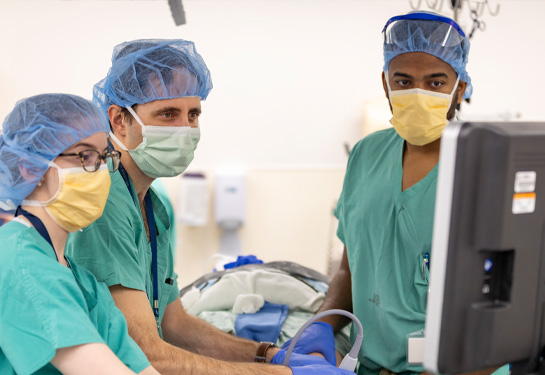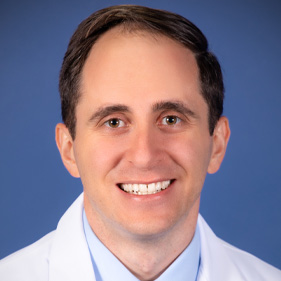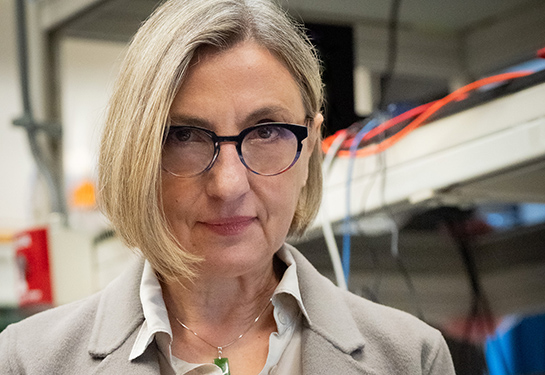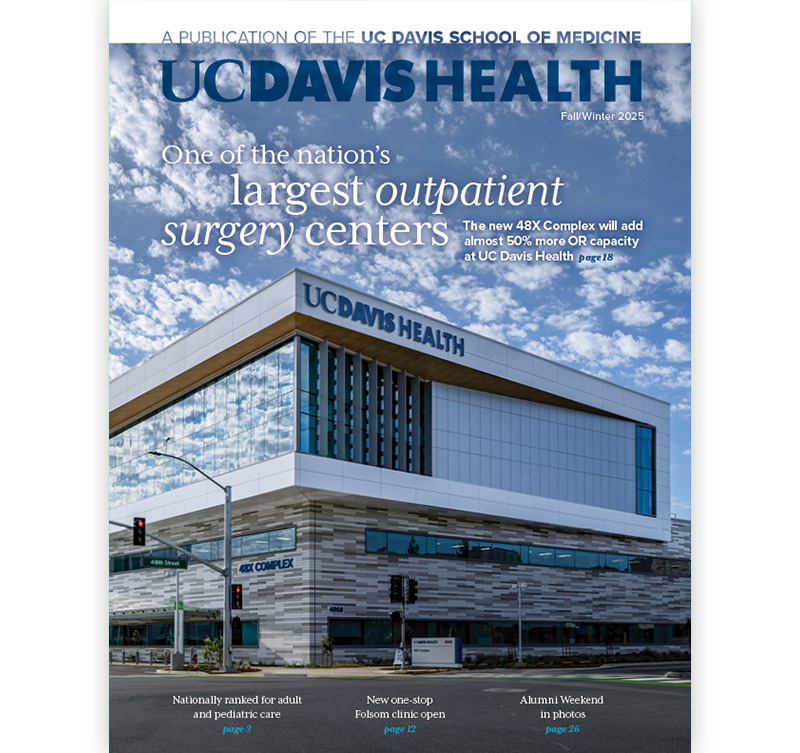Newly available surgery gives lymphedema patients new hope
Multidisciplinary approach to treatment leads to designation for excellence
Betsy Bencken had a double mastectomy 22 years ago and survived breast cancer. But she could not escape the lasting effects of having 26 lymph nodes removed in the process.
“I had swelling in my left arm that never went away,” Bencken said. “When it was hot, it would swell. When I tried to garden, it would swell. Just an ongoing discomfort.”
She recently found welcomed relief for her lymphedema, a condition most commonly caused by certain cancer treatments, thanks to a new surgery being offered at the UC Davis Health Center for Lymphatic Disease. As a result, her quality of life has improved tremendously: The constant discomfort in her arm has subsided and she relies less now on wearing tight compression sleeves to reduce swelling.
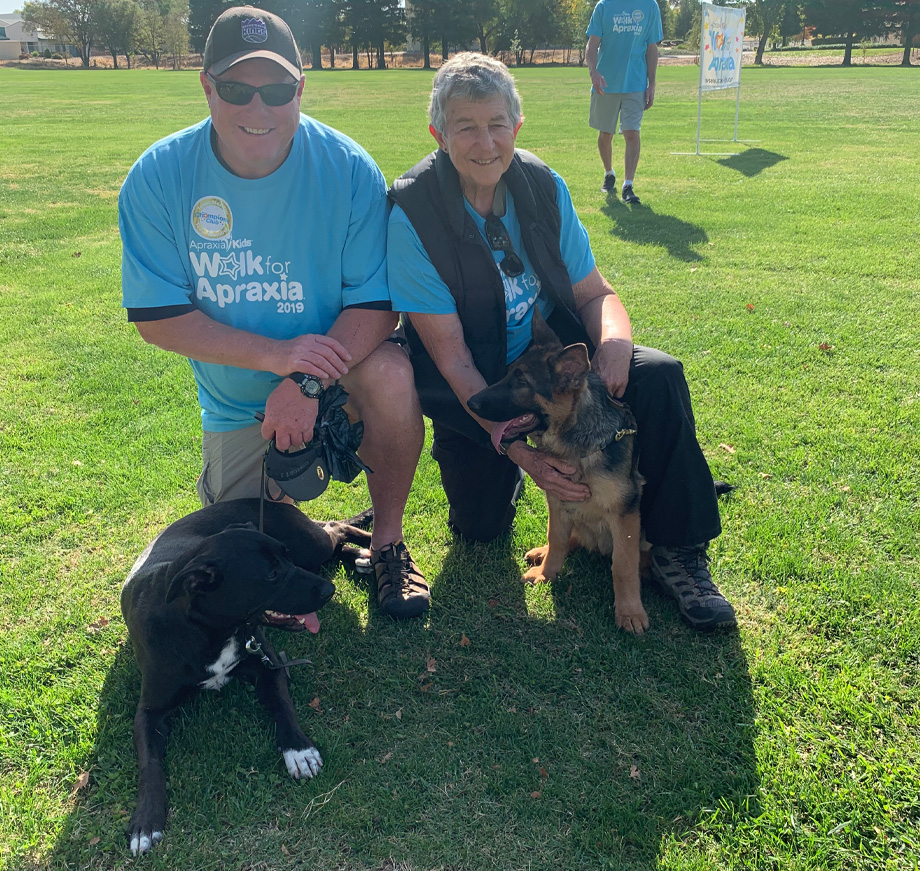
Novel approach, a first in our area
In the past two years, many patients like Bencken have undergone lymphovenous bypass (LVB) surgery at UC Davis. This minimally invasive procedure involves identifying lymphatic channels and connecting them to nearby veins to allow for fluid to bypass the blockage. This essentially creates offramps to avoid the upstream traffic accident. The vessels are very small, often less than 1mm in diameter, and the entire surgery is therefore performed under a high-powered microscope.
Ara Salibian is a plastic and reconstructive microsurgeon in the Department of Surgery and executive director of the center.
Salibian performed the first LVB on the West Coast utilizing ultra-high frequency ultrasound (UHFUS) mapping. The mapping allows surgeons to visualize these tiny lymphatic vessels in real time to be able to more precisely and efficiently perform bypass surgery.
“Offering this novel procedure within our center has allowed us to provide new options for improving quality of life in post-cancer survivorship for patients not only in Sacramento but in the greater Central and Northern California regions,” Salibian said.
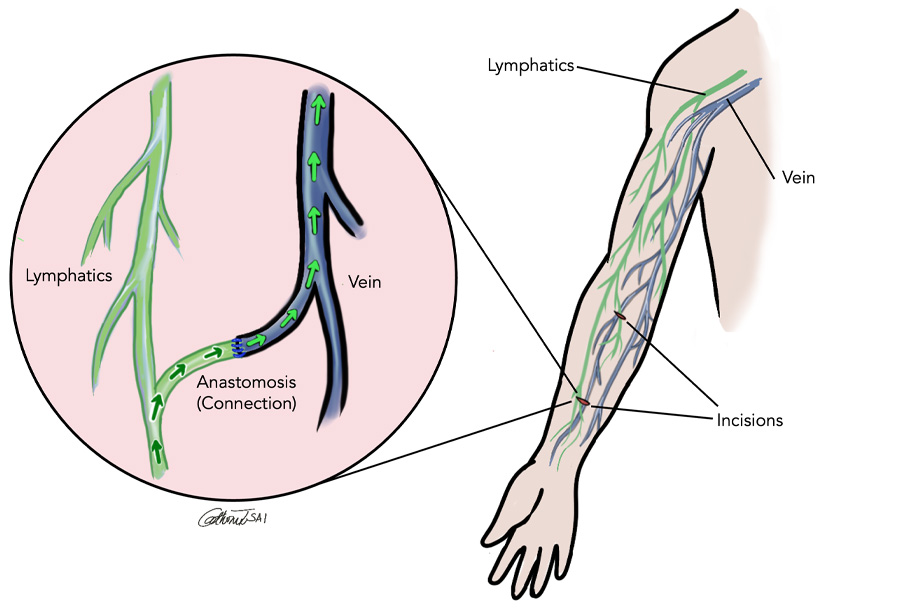
What is lymphedema?
Lymphedema, especially secondary lymphedema, accounts for roughly 99% of all lymphedema cases, impacting an estimated 10 million Americans. Despite its widespread occurrence, it continues to be an underrecognized and underfunded public health concern.
“The most common type of lymphedema in developed countries is breast cancer-related lymphedema,” explained Salibian. “The risk for developing breast cancer-related lymphedema, depending on different factors, roughly ranges from 20 to 40%. So, the lifetime risk is not small.”
Lymph nodes are like toll booths through which the lymphatic vessels pass through. When those nodes are removed, you can imagine a traffic accident at those toll booths, causing backup of fluid in the vessels. In Bencken’s case, her arm. That fluid can seep out into the skin and cause actual damage to the vessels over time.
“As lymphedema advances, it becomes uncomfortable, with symptoms such as limb enlargement, heaviness and difficulty wearing clothing,” Salibian said. “There is also an increased risk of skin infections known as cellulitis in more advanced stages, which can be both limb and life threatening.”
Salibian joined UC Davis Health in 2022 with the goal of creating the center for the diagnosis, treatment and prevention of lymphedema through lymphatic medicine, imaging, surgery and therapy. Providers associated with the center see more than 400 patients with lymphatic disease annually.
This designation signifies a way for us to broaden how we care for patients, expanding our ability to reach those in need of care and letting patients know that we have the resources available to diagnose and treat them—Ara Salibian, director of the Center for Lymphatic Disease
Center of excellence
The center gained another first this month — being designated as a Lymphatic Education and Research Network (LE&RN) Surgery Center of Excellence. LE&RN awards excellence to centers that provide multidisciplinary clinical care at the highest standards, as well as professional and lay education in the areas they serve.
“For me, this designation signifies a way for us to broaden how we care for patients, expanding our ability to reach those in need of care and letting patients know that we have the resources available to diagnose and treat them,” Salibian added.
After living with the symptoms for 18 years, Betsy Bencken had the surgery. In less than two months, the swelling in her left arm reduced to a level nearly identical to her non-affected right arm.
Bencken praised the center and its team of providers.
“The quality of care they provided was outstanding from the very beginning,” Bencken said. “That’s a major achievement and a credit to the system that we can get this level of care in Northern California.”


